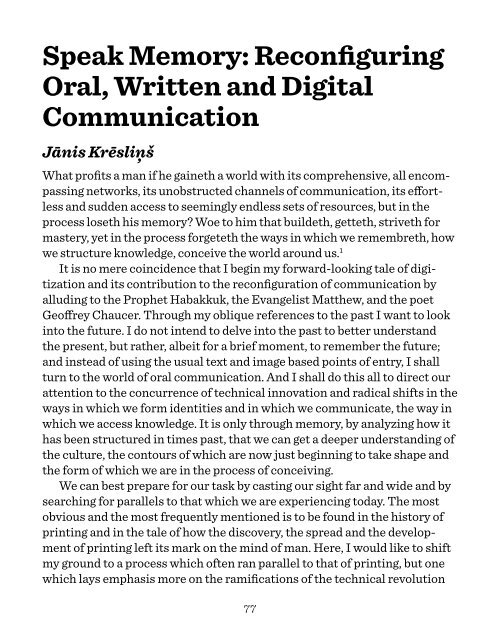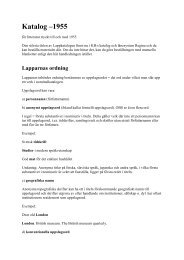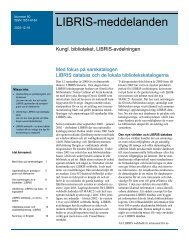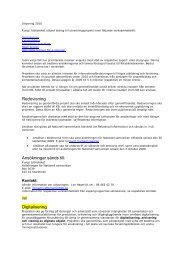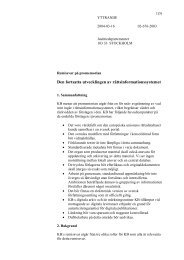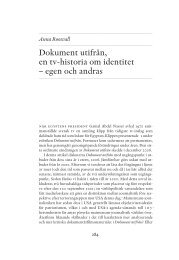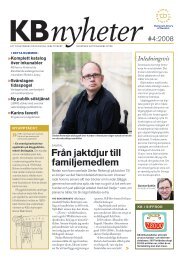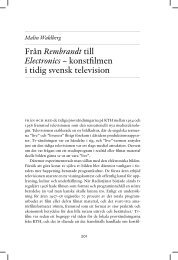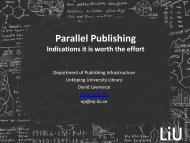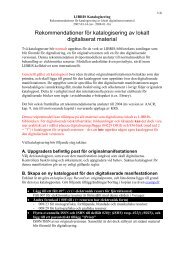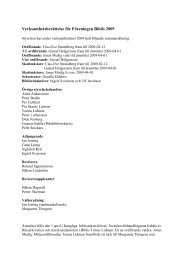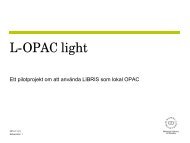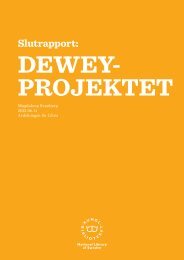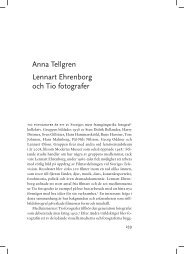Ledarskap och lidelse - Kungliga biblioteket
Ledarskap och lidelse - Kungliga biblioteket
Ledarskap och lidelse - Kungliga biblioteket
Create successful ePaper yourself
Turn your PDF publications into a flip-book with our unique Google optimized e-Paper software.
Speak Memory: Reconfiguring<br />
Oral, Written and Digital<br />
Communication<br />
Jānis Krēsliņš<br />
What profits a man if he gaineth a world with its comprehensive, all encompassing<br />
networks, its unobstructed channels of communication, its effortless<br />
and sudden access to seemingly endless sets of resources, but in the<br />
process loseth his memory? Woe to him that buildeth, getteth, striveth for<br />
mastery, yet in the process forgeteth the ways in which we remembreth, how<br />
we structure knowledge, conceive the world around us. 1<br />
It is no mere coincidence that I begin my forward-looking tale of digitization<br />
and its contribution to the reconfiguration of communication by<br />
alluding to the Prophet Habakkuk, the Evangelist Matthew, and the poet<br />
Geoffrey Chaucer. Through my oblique references to the past I want to look<br />
into the future. I do not intend to delve into the past to better understand<br />
the present, but rather, albeit for a brief moment, to remember the future;<br />
and instead of using the usual text and image based points of entry, I shall<br />
turn to the world of oral communication. And I shall do this all to direct our<br />
attention to the concurrence of technical innovation and radical shifts in the<br />
ways in which we form identities and in which we communicate, the way in<br />
which we access knowledge. It is only through memory, by analyzing how it<br />
has been structured in times past, that we can get a deeper understanding of<br />
the culture, the contours of which are now just beginning to take shape and<br />
the form of which we are in the process of conceiving.<br />
We can best prepare for our task by casting our sight far and wide and by<br />
searching for parallels to that which we are experiencing today. The most<br />
obvious and the most frequently mentioned is to be found in the history of<br />
printing and in the tale of how the discovery, the spread and the development<br />
of printing left its mark on the mind of man. Here, I would like to shift<br />
my ground to a process which often ran parallel to that of printing, but one<br />
which lays emphasis more on the ramifications of the technical revolution<br />
77


